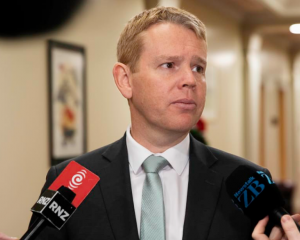
An employment lawyer is warning some workers will fall through the cracks under the government's Covid-19 wage subsidy scheme.
The government has stumped up $9.3 billion for its wage subsidy scheme, after dramatically expanding the initial business support package. Struggling employers can apply for $585 a week for each full-time worker for up to 12 weeks.
But not everyone is taking up the offer.
To qualify, employers must make best efforts to top up the $585 payment to a minimum of 80 percent of their normal income for the 12-week subsidised period.
Rout Milner Fitchett employment lawyer Luke Acland said for many of his clients that was simply impossible.
Some have been forced to shut up shop during the lockdown and their staff could not work from home.
"In that circumstance the employer can't pay 80 percent of wages because; one, their business isn't operating and two, there isn't an obligation on the employer to pay the employee, because wages are only due when the employee is able and willing to work," he said.
The government is also providing $585 a week for up to eight weeks to workers who have to take sick leave or self-isolate.
However, Acland said that applied only to those who had recently travelled abroad, or contracted Covid-19, or had close contact with someone who has.
"If an employee isn't entitled to the leave payment and an employer isn't paying wages because their business isn't operating, then they may be on unpaid leave and potentially if they are on unpaid leave they are still an employee, potentially they could still be ineligible for the unemployment benefit if they still have that employment," he said.
Another option would be to make staff redundant but the unemployment benefit, even with the government getting rid of the stand-down period, would be much lower than the subsidy, he said.
Finance Minister Grant Robertson told Morning Report a universal basic income was one of the options being considered to help people who lose their jobs or face uncertainty.
"We're obviously going to be in a situation where a large number of people are going to be relying on income support ... for an extended period.
"The benefit system is there and obviously we have to look at how that can be tweaked, we have to look at how we can continue to see people attached to their employers - that's been the point of the wage subsidy scheme - and we have to now look towards what might be required over the coming months and years.
"This has moved so incredibly fast but we're making sure we're securing people's incomes in the here and now and working towards what a long-term solution would look like."
Robertson said it was too early to say what a potential universal basic income would look like, and the priority was to work through the impending lockdown.
"We're looking at the medium and long-term here where we recognise that a large number of New Zealanders are going to be potentially not in work for periods or uncertain about the work they're going to have, we have to look at all the possible options for what that might look like in terms of government support."
However, National Party leader Simon Bridges does not support a universal basic income.
"What would concern me is the situation where effectively you are seeing the same or double funding for the same issue," he said.
Supporting jobs and workers could be done through a wage subsidy or the benefit system.
The government programme needed to be changed somewhat, he said, such as the wage subsidy.
"For example, what we should be thinking about is a situation where businesses take down the hours of workers, government comes in and funds say 80 percent of the remainder of that pay to keep those people in their jobs.
"To me that should be the primary focus rather than a UBI that wouldn't be easy to undo."
CTU 'deeply concerned' by actions of some businesses
Council of Trade Unions president Richard Wagstaff said their affiliates were reporting employers compelling staff to use sick or annual leave instead to cover the level four isolation period.
"This not only breaches MBIE advice but is also in violation of the law, such decisions about annual leave need to be made in consultation, sick leave must only be used when someone, or their dependent, is sick," he said.
Grant Robertson told Morning Report employers needed to ensure they were abiding by the laws, talking to their workforce about their plans, and to use available schemes to support employees.
Wagstaff said there were also reports that some employers were not acting in good faith when accessing wage subsidies.
"When an employer does so they are expected to, with best endeavours pay 80 percent of that person's salary/wages for 80 percent work.
"Employers who are taking taxpayers' money in a time of crisis have a moral obligation to not then use it to line their own pockets."
Wagstaff said it was also shocking some had been self-proclaiming themselves as an essential service.
"This type of behaviour makes a mockery of the serious situation we face."
However, he said most employers were doing the right thing.










